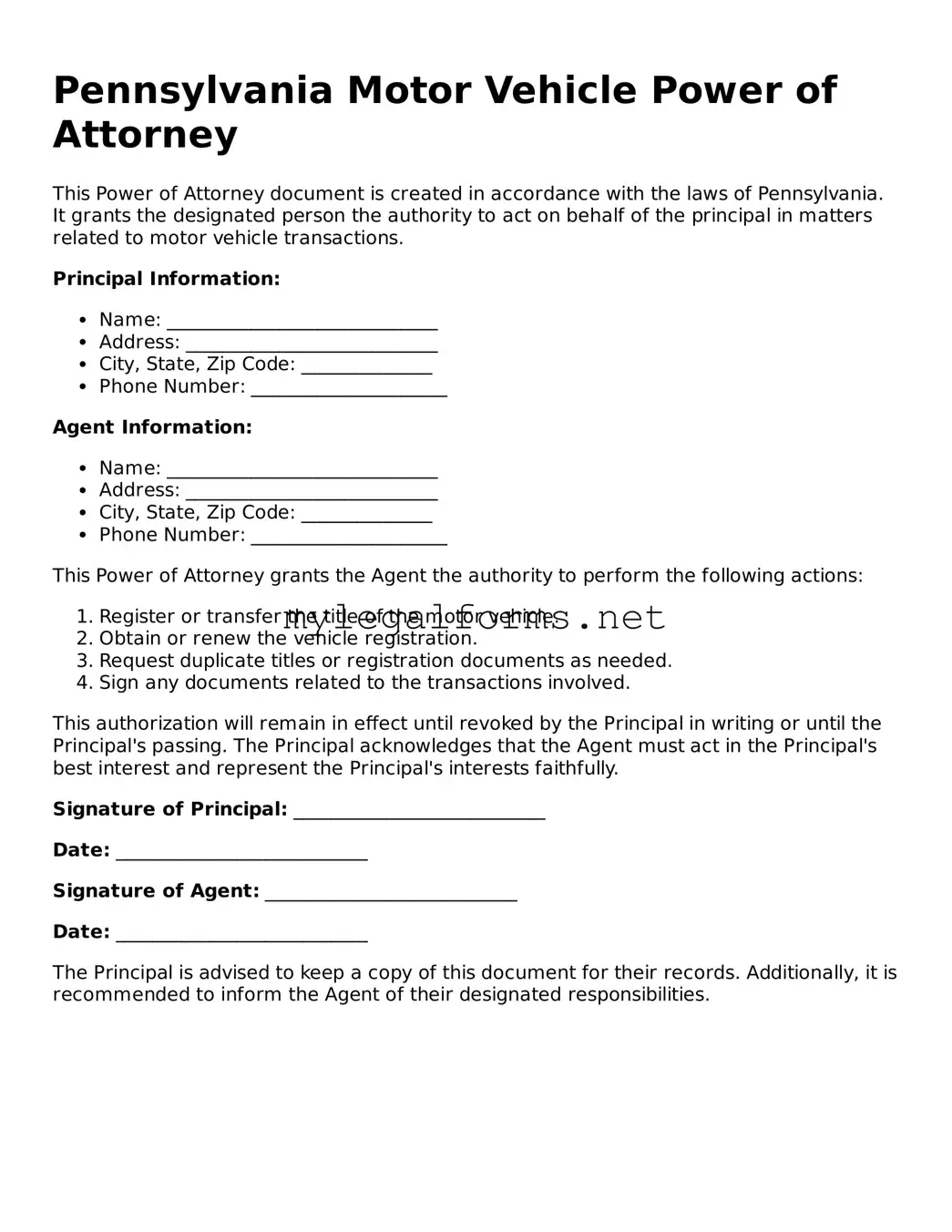Motor Vehicle Power of Attorney Document for Pennsylvania State
The Pennsylvania Motor Vehicle Power of Attorney form is a legal document that allows one person to authorize another to act on their behalf regarding motor vehicle transactions. This form can be particularly useful when the vehicle owner is unable to handle these matters personally, whether due to distance or other commitments. By using this form, individuals can ensure their vehicle-related affairs are managed smoothly and efficiently.
Launch Motor Vehicle Power of Attorney Editor

Motor Vehicle Power of Attorney Document for Pennsylvania State
Launch Motor Vehicle Power of Attorney Editor

Launch Motor Vehicle Power of Attorney Editor
or
⇓ PDF Form
Complete the form at your pace — fast
Finish your Motor Vehicle Power of Attorney online and download the final version.